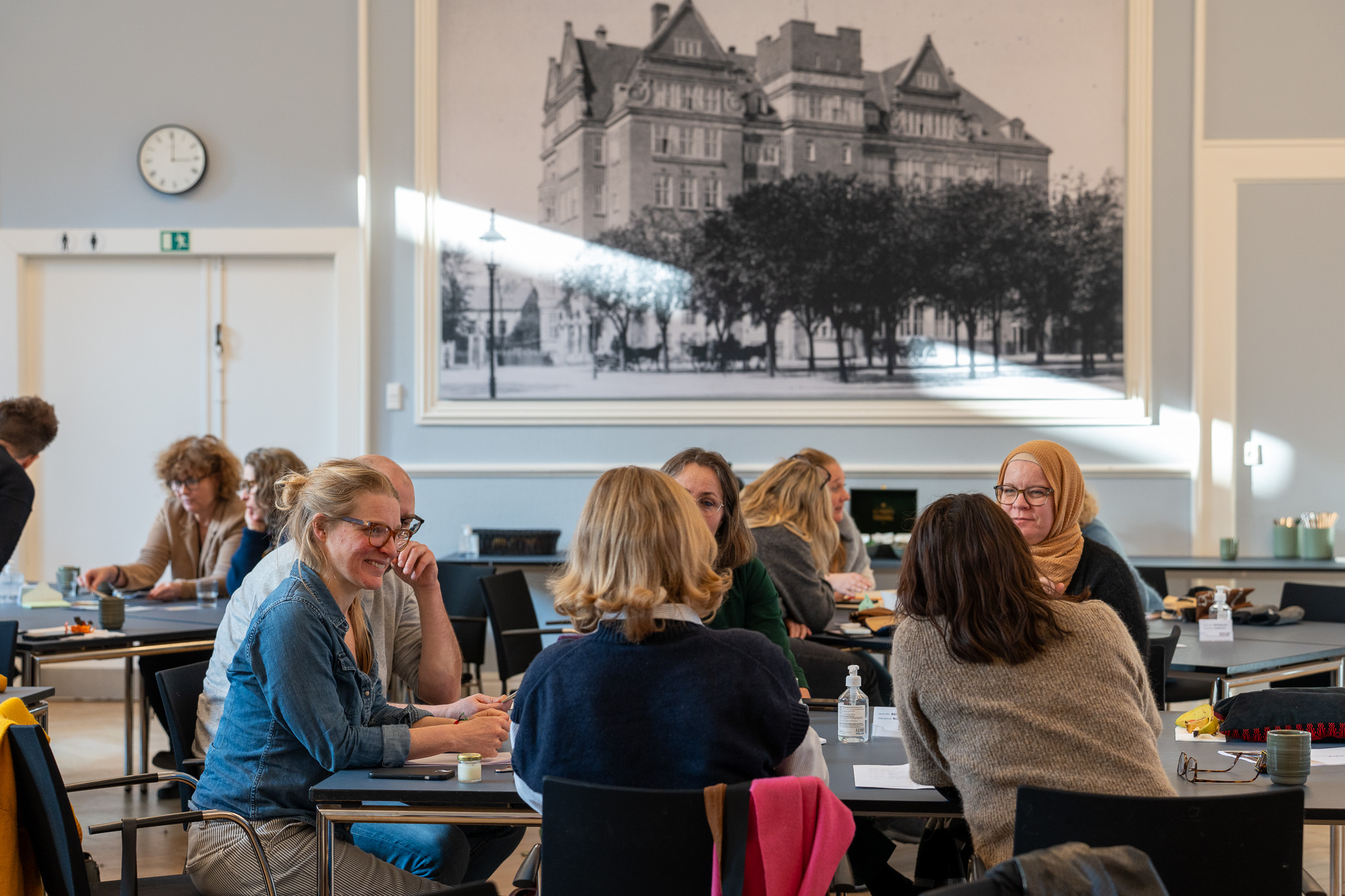
Researcher: Caspar Eric's disability poems are duty reading for politicians and civil servants alike

Caspar Eric's new book “New Balances — Disability Poems” is a necessary, beautiful and macabre book that takes a sharp look at the lived experience of disability and how to balance in a world that is fundamentally not made for one and that continues to shut itself off.
Discussion paper by Emil Falster, post.doc at the Bevica Foundation's Universal Design Hub and Aalborg University
Many of the injustices to which the poems provide insight are not merely expressions of the author's own experiences, but at the same time an echo of structurally unequal conditions in society.
The collection of poems is about closing up the world, breaking the silence about these social conditions and creating a new language about the problems. It can become a tool for starting a new conversation, bringing with it the necessary changes in the field of disability, and it should be a must-read for every politician and official dealing with the disability field.
Gives insight into what it feels like to have a disability
At the beginning of the collection of poems, we meet Caspar, who has begun to lose more and more of his foreignness. We are being introduced to an adult life with increasing pain, an increased need for physiotherapy, and that he has begun to fall more; he has entered the “time of falling,” as he writes.
We are introduced to the physical exercises that are supposed to expose him losing more of his disability, and the poems collectively give a sense of how he thinks about your own body and his disability.
It shows, on the one hand, how medical discourses about normality intervene right down into everyday life, in our body and psychological self-relationships, and which on the other hand also gives insight into how life takes on as an endless exercise in becoming and feeling like a human being. Both in the eyes of others and in their own eyes.
Such insight also draws the reader into the extensive strategic work that people with disabilities have to do on a daily basis, partly to maintain bodily functions, and partly to be able to “fit in” and try to live and be in a world that still reproduces various forms of stigma, exclusion and discrimination.
“Such insights also draw the reader into the extensive strategic work that people with disabilities have to do on a daily basis”
It is important not only for health professionals and caseworkers, but also for politicians and officials dealing with the field, to have this insight into what it feels like to live with a disability.
This is achieved, for example, through poems such as “The Citizen Beast” and “Pinocchio story”, in which Caspar Eric recounts a childhood in which his body was an object for the work of others:
“My body is the work of other people./I've been training every day from before I could walk/Fired around on treadmills and rubber mats.”
Dealing with Discrimination
More recent contributions within poetry address the bodily and intimate experiences of living as a minority. In Denmark, we are increasingly paying attention to the structural unequal distribution of power and privilege with which women, sexual minorities, transgender people and the “underclass” have to live. Examples include Glenn Bech, Gry Stokkendahl Dalgas and Haidar Ansari.
However, unlike other Scandinavian countries, we still lack a language for the discrimination experienced by people with disabilities. Here, apparently, we are still silent. But here Caspar Eric delivers a historic and decisive contribution.
Caspar confronts us with this in “The angry poem, haha”: “The lack of care is a choice you have made./Our death and exclusion is a choice you have made./The silence and discrimination are a choice you have made./Your silence shall no longer protect you./You shall no longer be able to invoke blindness.”
Disability poems confront us with our silent self-righteousness as the privileged bodies who still look away when people with disabilities are discriminated against and who blindly continue to imagine themselves: “that those with disabilities are someone else who takes care of”.
“However, unlike other Scandinavian countries, we still lack a language for the discrimination experienced by people with disabilities. Here, apparently, we are still silent. It is the other way around where Caspar Eric makes a historic and decisive contribution.”
The negative connotation of the concept of disability
Although the poems together contain many insights, one of the most important must be the initial confrontation with the negative ontology of the concept of disability.
By drawing on historical examples, Casper Eric, for example in the poem “Olivia”, shows how a disability is often understood as something negative, a tragedy, or even a punishment.
Seeing it in other ways often provokes those who do not have a disability themselves — while alternative understandings, for example of disability as something positive and desirable, are denied to the group itself.
Caspar Eric kicks his legs away from under us in the poem “The Incumbents,” in which we are precisely confronted with our stereotypical perception of disability as something exclusively negative: “The wounded are part of the/welfare state/redistributive policy. May/the owners of the chairs/ face a future with/ disabled children. If/you just thought/that I meant as/PUNISHMENT, then/screw you. I'm trying to give them care.”
The collection of disability poems can teach anyone who deals with the field something, and they can give us valuable insights into what it feels like to live with a disability.
This is why Caspar Eric's 'disability poems' should be a must-read for every politician and civil servant who deals with disability.
The debate post was published in Altinget Social on 10 February 2023
Latest News
Follow the latest news from the Bevica Foundation below.



